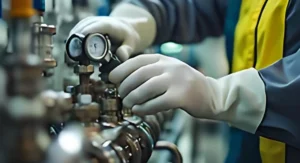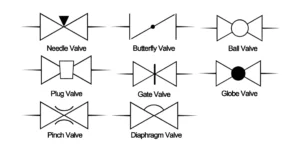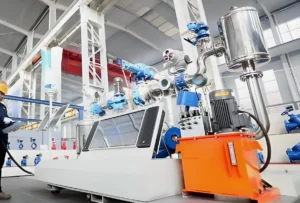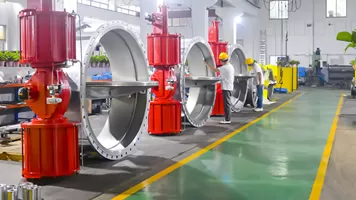In today’s industrial landscape, valves, as the pivotal components of fluid control systems, are experiencing significant technological advancements that directly impact the efficiency, safety, and sustainability of the entire industrial ecosystem. Recently, the valve technology sector has witnessed a series of groundbreaking breakthroughs, not only enhancing valve performance and reliability but also propelling the deepening of Industry 4.0 and injecting new vitality into smart manufacturing.
Application of High-Performance Materials Enhances Valve Durability
As industrial equipment demands increasingly precise fluid control, the selection of valve materials has become a crucial direction for technological innovation. In recent years, researchers have successfully developed various novel high-performance materials, such as high-strength alloys, corrosion-resistant ceramics, and nanocomposites. The application of these materials has significantly improved valves’ wear resistance, corrosion resistance, and high-temperature endurance. These improvements enable valves to maintain stable performance under extreme operating conditions, extending their service life and reducing maintenance costs.
Integration of Intelligent Technology Enables Precise Control
Intelligence is another major trend in valve technology development. By integrating sensors, actuators, controllers, and other intelligent devices into valves, real-time monitoring and precise control of fluid flow are achieved. These intelligent valves can automatically adjust their openings based on process requirements and enable remote operation and fault diagnosis through remote monitoring systems. Furthermore, when combined with big data analysis and artificial intelligence algorithms, valves can predict potential failures, allowing for proactive maintenance, effectively avoiding production disruptions and enhancing overall system efficiency and safety.
Green and Environmental Protection Concept Promotes Sustainable Development
Amidst the global trend of heightened environmental awareness, valve technology is also placing greater emphasis on eco-friendliness. Researchers are working to develop energy-efficient valves by optimizing structures and adopting novel materials to reduce energy consumption and emissions. Additionally, emphasis is being placed on enhancing valves’ recyclability to facilitate resource recycling and minimize environmental impact. These green valves not only comply with environmental regulations but also bring economic and social benefits to enterprises.
Customized Services Meet Diverse Needs
As market competition intensifies and user demands diversify, customized services have emerged as a new trend in the valve industry. Many valve manufacturers are focusing on researching and analyzing user needs, providing personalized products and solutions tailored to their specific requirements. This customized service approach not only enhances product market competitiveness but also strengthens user satisfaction and loyalty.
Integration and Modularization Simplify System Structures
Faced with increasingly complex industrial systems, the integration and modularization of valve technology have become vital means of improving system efficiency and reliability. By integrating multiple valve components into functional, powerful modular units, system structures are simplified, reducing installation and maintenance costs. Additionally, modular design facilitates system upgrades and expansions, enhancing system flexibility and adaptability.
The continuous innovation of valve technology is leading a new round of transformation in the industrial sector. From the application of high-performance materials to the integration of intelligent technology, from the promotion of green and environmental protection concepts to the rise of customized services, and to the trend of integration and modularization, these changes have not only improved valve performance and reliability but also driven the deepening of Industry 4.0. In the future, as technology continues to advance and market demands evolve, valve technology will maintain its rapid development trajectory, contributing significantly to the sustainable development of the industrial sector.








